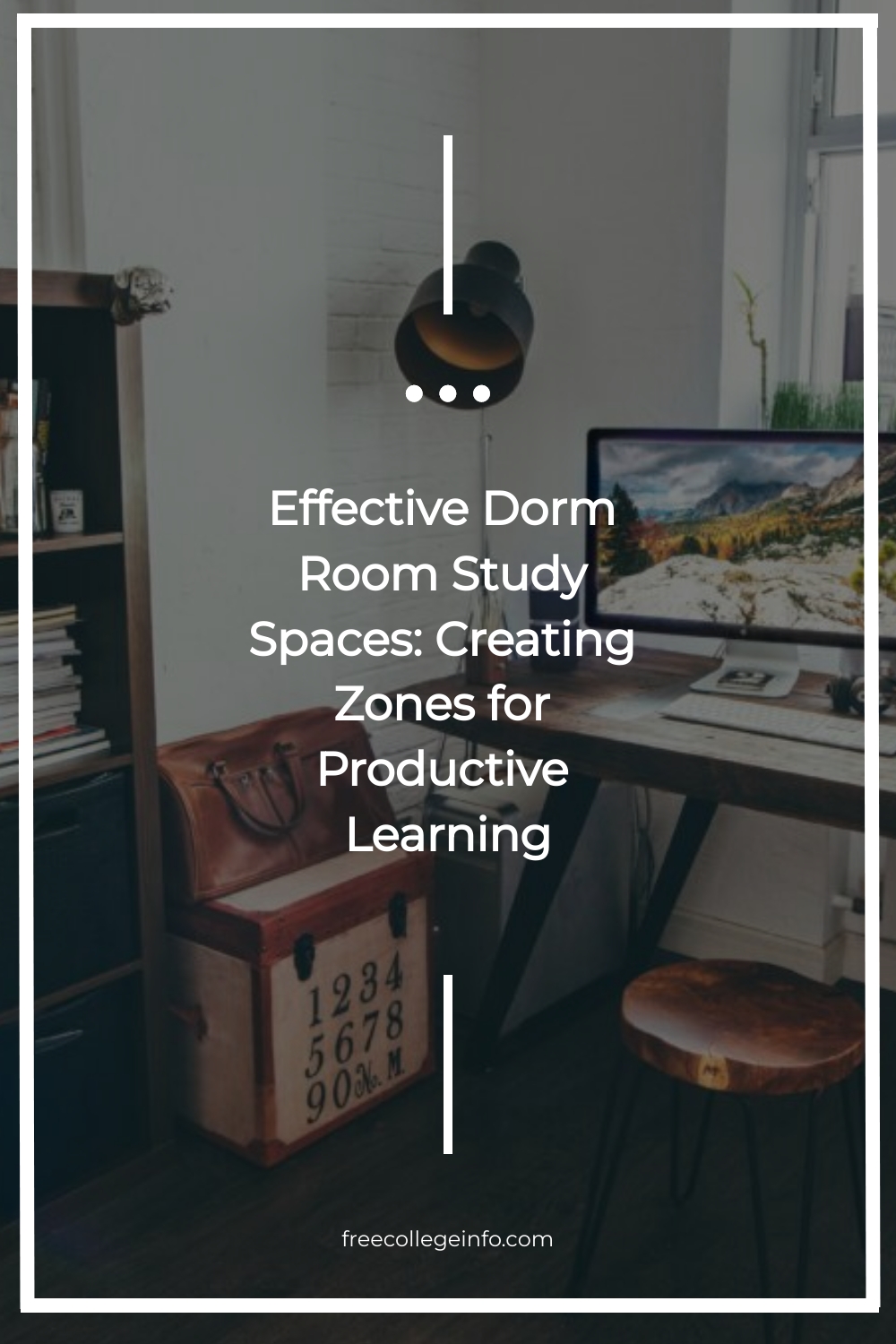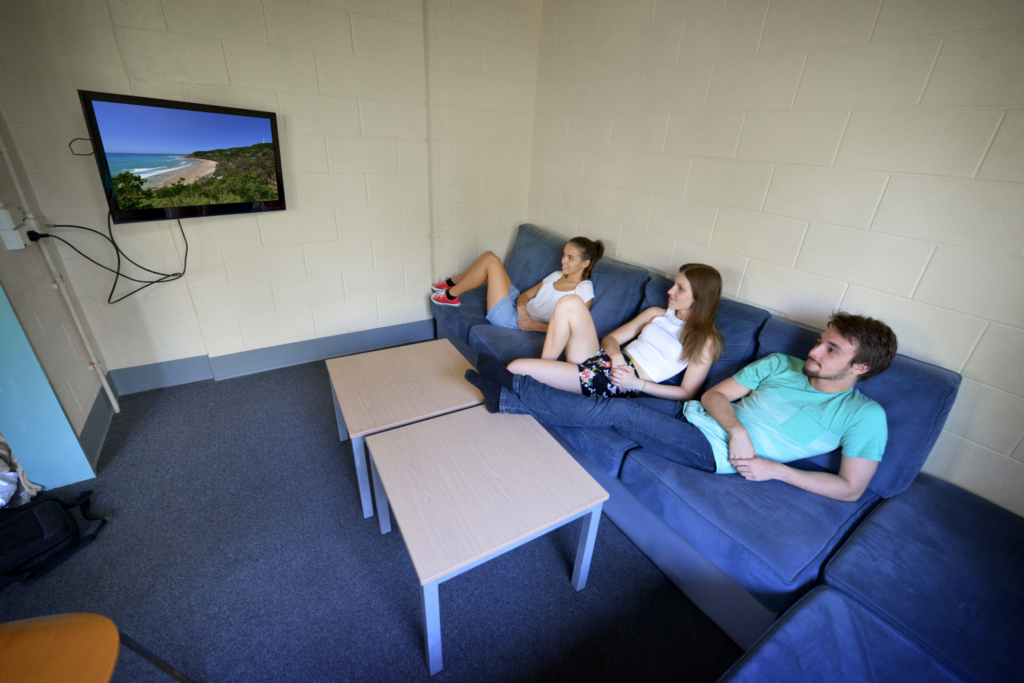Sometimes, academic success or failure can come down to whether you are able to focus when studying. And this, in turn, depends a lot on the environment you tried to tackle your studies in. So, let’s boost your chances of success together by learning how to create zones for productive learning in your dorm room!
In this post:
Choosing the right furniture
If you want to make zones for productive learning, then you need to set yourself up for a comfy student life first. And this has everything to do with picking the right furniture. Start with a suitable desk and chair, prioritizing comfort and ergonomics. Make sure your desk is spacious enough and that your chair provides proper support and comfiness! Consider space-saving storage solutions like shelves or under-bed storage to keep your room organized and clutter-free, too. Opt for multipurpose furniture like a foldable desk to maximize your limited space. Don’t forget to add a cozy touch with cushions or a comfortable rug to create a welcoming atmosphere. The right furniture can make a significant difference in your dorm room, enhancing your learning ability and overall well-being as a student. So, choose wisely and make your dorm room a comfortable space for productive learning!
Decluttering and organizing
Decluttering and organizing your dorm room is a helpful step in creating an effective study space. Start by sorting through your belongings and categorizing them. Use storage bins, baskets, or hanging organizers to keep items neatly tucked away. Ensure that everything has its designated place, making it easier to find what you need quickly. Regularly declutter to maintain a clean and organized study environment, significantly boosting your productivity and concentration levels. Note that decluttering doesn’t have to mean getting rid of the things you don’t need to. You can always look for storage services in Florida near your campus to put away the belongings you’ve decided are less important. This way, they’re out of the way, and you can easily access them as and when needed.
Noise control
Effective noise control in your study space is immensely useful for maintaining concentration and productivity. Start by identifying potential sources of distraction and find ways to mitigate them. Consider using noise-canceling headphones to block out external disturbances or play background white noise or calming music at a low volume to create a more focused atmosphere. If you have roommates or noisy neighbors, open communication about your study needs and establishing quiet hours can greatly reduce disruptions. Furthermore, soft furnishings like rugs, curtains, and wall hangings can help absorb sound and create a more peaceful environment. Finding the right balance between tranquility and comfort does a lot for creating an ideal study atmosphere. So, by implementing these noise control strategies, you can enhance your concentration, making your study sessions more efficient and effective.
Time management and scheduling
Time management and scheduling are skills every college student should master. They may not directly contribute to setting up study spaces. However, creating a structured study routine is needed to stay organized and maximize productivity. You should always begin by figuring out realistic goals and breaking them down into tasks you can manage. Utilize calendars, planners, or digital tools to create a visual roadmap of your commitments and study sessions. Prioritize tasks based on importance and deadlines, allocating more time to challenging subjects. Remember to factor in breaks to avoid burnout and maintain focus, too. Then, adapt your schedule as needed, but ensure consistency in your routine. Effective time management allows you to balance your academic workload, extracurricular activities, and personal life efficiently. It’s a valuable skill that both boosts your academic success and helps you develop a foundation for future time management in your career and life beyond college!
Ergonomics and comfort
Ergonomics and comfort should never be sacrificed when setting up zones for productive learning. In fact, they help a ton to maximize both comfort and productivity. Investing in a chair and desk that provide proper support and adjustability to minimize strain during long study sessions is crucial. Ensure your desk is at a suitable height, allowing you to maintain good posture and reducing the risk of discomfort or pain. Consider adding cushions or back support for extra comfort, too.
Additionally, placing your computer monitor at eye level can further enhance ergonomics and reduce neck strain. Ergonomics isn’t just about physical comfort; it also impacts your concentration ability. By creating an ergonomic environment, you prioritize your well-being and set the stage for more focused and productive study sessions, ultimately contributing to your academic success.
Digital organization and productivity tools
Digital organization and productivity tools are great assets that enhance your results when creating zones for productive learning. After all, embracing these technologies can easily improve your study routine. Consider utilizing note-taking apps that allow you to easily organize and search your class notes, creating a seamless studying experience. Calendar and scheduling apps also help you manage your time efficiently, ensuring you never miss a deadline or important event. Task management tools like to-do lists and project boards also keep you on top of assignments and projects.
Furthermore, cloud storage services ensure your documents are accessible from anywhere, preventing data loss and facilitating collaboration with peers. By harnessing these digital tools, you streamline your academic life, reduce stress, and boost productivity. The key is to find the apps and systems that align with your workflow, making learning and staying organized second nature.
Creating a relaxation zone
Designating a relaxation zone within your space is needed for achieving a balanced and stress-free college life. This area provides a tranquil retreat where you can unwind, recharge, and take a break from learning. Consider incorporating a cozy chair or bean bag, soft lighting, and soothing decor elements to create a serene ambiance. Add a shelf or corner for your favorite books or magazines, too, providing an escape into different worlds. This space can double as a spot for meditation, deep breathing exercises, or simply a quiet moment to clear your mind. By incorporating a relaxation zone, you ensure that your space isn’t just a place of work. Instead, it can also become a retreat for rest and rejuvenation, ultimately contributing to your overall well-being and academic success.
Complement your efforts to study
With our exploration of creating zones for productive learning in your dorm room, you can set up a space that will complement your efforts to study perfectly. By implementing the strategies and tips shared here, you’ll be better equipped to tackle your studies efficiently while maintaining a healthy work-life balance! So, go ahead and transform your dorm room into the ultimate study retreat, and watch your academic success soar.







